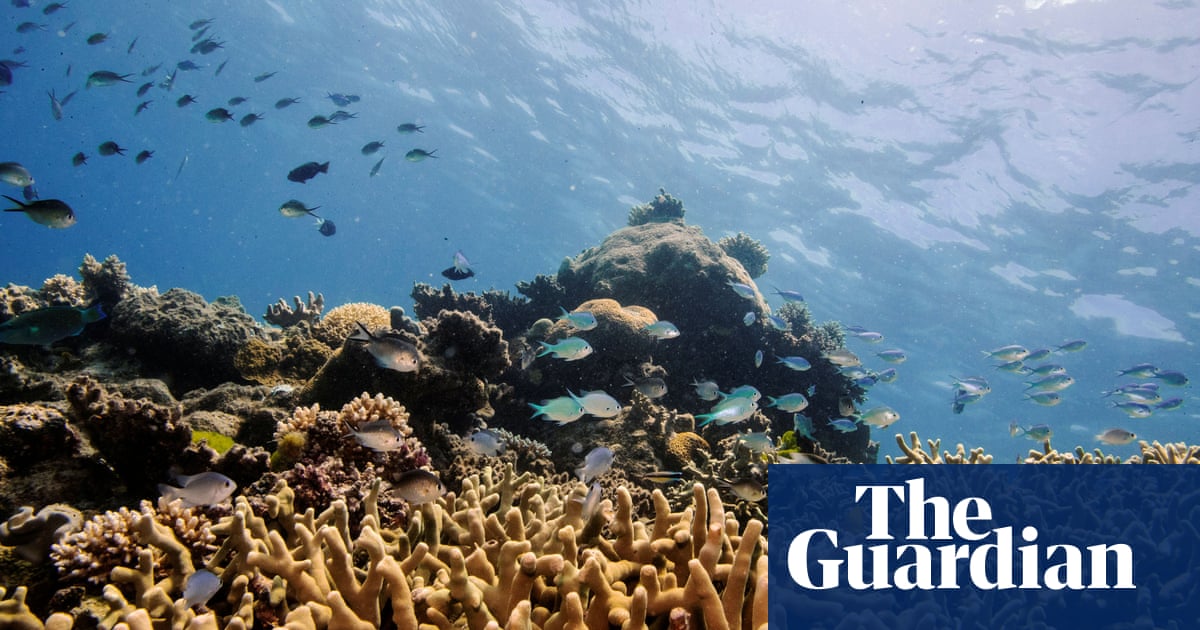
Microplastics can alter the behaviour of fish, with those that ingest the pollutants likely to be bolder, more active and swim in risky areas where they die en masse, according to a new study.
The survival risk posed by microplastics is also exacerbated by degrading coral reefs, as dying corals make particularly younger fish more desperate to find nutrition and shelter, and to venture into waters where they are more likely to be taken by predators themselves.
In a joint study conducted by Australia’s James Cook University as well as other institutions including the University of Cambridge, marine ecologists pulse fed groups of juvenile ambon damselfish, housed across several tanks, a diet of brine shrimp.
In addition to the shrimp, researchers also added fine microplastics, including polystyrene spherical beads about 200 microns (0.2mm) thick, into some of the tanks, in an effort to simulate the dietary choices fishes encounter in the environment. Researchers found the microplastics were mostly eaten.
After four days of feeding the tanks of fish differently, the researchers tagged the fish and released them back into the waters they were originally taken from – on the northern part of Australia’s Great Barrier Reef.
Fish were then placed by divers in different areas, into live healthy corals as well as areas of degraded corals.
The study, published in the Proceedings of the Royal Society B journal, found that the groups of fish that had eaten microplastics exhibited the more active, bold and risky behaviour.
All the fish that ate microplastics that were placed in areas of degraded corals were eaten by predators within 72 hours of being released by researchers.
Prof Mark McCormick, who led the study, told the Guardian the behavioural change, and subsequent impact on their chance of survival, was triggered because when fish ingest microplastics, they become full but haven’t received the nutrition they require.
“Their gut is saying ‘you’re full’, but their brain is saying ‘you need nutrition’.
“Like humans, when we’re very hungry, we might run across the road … as opposed to walking across safely. And for the fish who are hungry, they are more willing to take risks, and this means straying further from shelter for food, where they are eaten by predators.”
McCormick said most of the microplastic waste in Australian waters came from fast food associated containers and paraphernalia, including bottles, which got flushed into the sea and broken down by agitation and weather events into “millions of pieces”.
Understanding of plastic pollution in marine life, he explained, “often tends toward popular photos of turtles with straws in their noses, birds full of plastic, and fish stuck in a six-pack ring, when the animal thinks it’s food and ends up starving to death”.
“There’s very little information when you look at when the fish can eat the plastic, as is the case with microplastics, and look at it pass through their guts and when it’s digested.”
McCormick said the study looked at juvenile fish because they’re vulnerable to larger fish and are at a stage of life “where they’ve got to learn who is a predator and who is not very quickly”.
“Anything that influences their mortality at their baby stage has quite major influences on how many fishes survive and how many can reproduce,” McCormick said. Predators that ate fish that had ingested microplastics accumulated the material, he added, which had ramifications for fish populations throughout the food chain.
Louise Tosetto, a marine ecologist at Macquarie University in Sydney, said a false sense of satiation could change a fish’s personality, and said that, while the JCU study did not examine this, some microplastics could also containchemicals that could affect behaviour.
Tosetto said previous studies had shown chemicals from pharmaceuticals and hormones that entered waterways could change fish personality.
The Link LonkOctober 28, 2020 at 07:43AM
https://ift.tt/34wZtOs
Fish that eat microplastics take more risks and die younger, study shows - The Guardian
https://ift.tt/35JkYuc
Fish
No comments:
Post a Comment